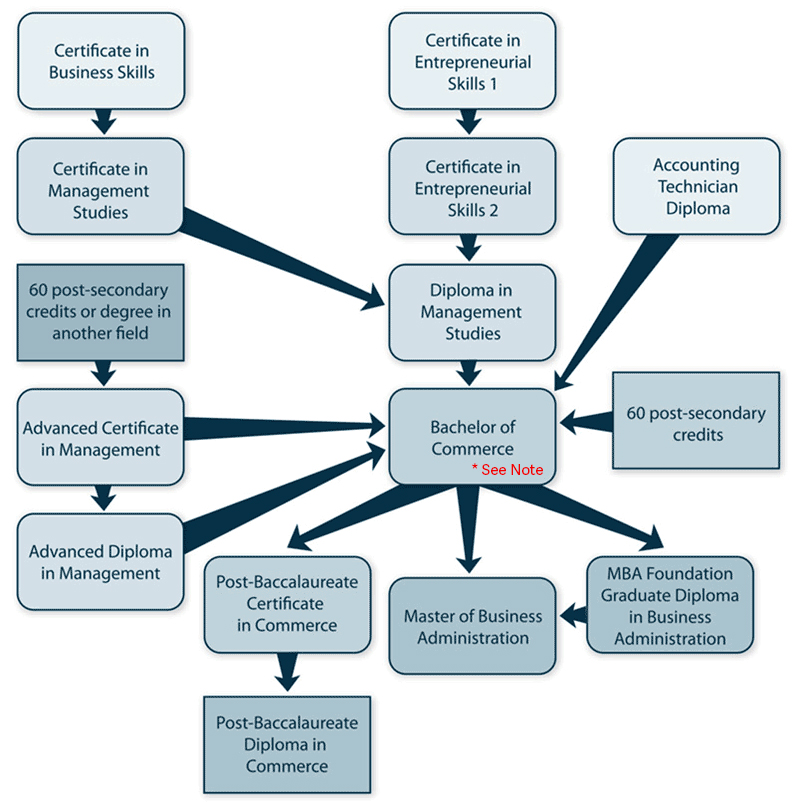Post-Baccalaureate Diploma in Commerce
Career Opportunities
Admission Requirements
A recognized baccalaureate degree in a field other than business
Residency Requirements
A minimum of nine TRU credits (distance or on-campus)
Diploma Requirements
Students with prior credit for courses equivalent or similar to some of the diploma courses must complete alternative coursework approved by Open Learning.
Thirty credits, with a minimum of 15 credits at the upper level and 15 in a concentration, with a GPA of 2.00 (a grade of C) or higher in core knowledge and elective requirements and a GPA of 2.33 (a grade of C+) or higher in each concentration course, as follows:
Core Knowledge Requirements (3 credits)
ACCT 2211, Financial Accounting, or equivalent
Elective Requirements (12 credits)
These 12 credits are selected to ensure that all course prerequisites for each concentration are satisfied. Any remaining credits bringing the total elective credits to 12 are to be chosen in consultation with a Program Advisor and must include courses in business, management or economics.
You are encouraged to select courses from the following to complete your elective requirements:
- ACCT 2251, Management Accounting (3)
- MNGT 3711, Business Ethics and Society (3)
- MNGT 4711, Decision Analysis (3)
- BLAW 2911, Commercial Law (3)
- One of ECON 1901, Principles of Microeconomics (3) or MNGT 1211, Management Principles and Practices (3)
Concentration Requirements (15 credits)
Accounting Concentration
One course from the following
Finance Concentration
One course from the following
Two of the following
One course from the following
One course from the following
One course from the following
One course from the following
General Management Concentration
Human Resources Concentration
Six credits of approved 4000-level business courses, such as
Or approved 3000 or 4000 level HRMN courses
Leadership Concentration
Six credits of approved 4000-level business courses from the following
Marketing Concentration
Four of the following
Programs and Pathways
This chart shows how credits gained in one credential can count toward another:
NOTE The Bachelor of Commerce program is currently not accepting applications

